The Truth About Truman Capote's Love Life: Jack Dunphy, John O'Shea... And Errol Flynn?
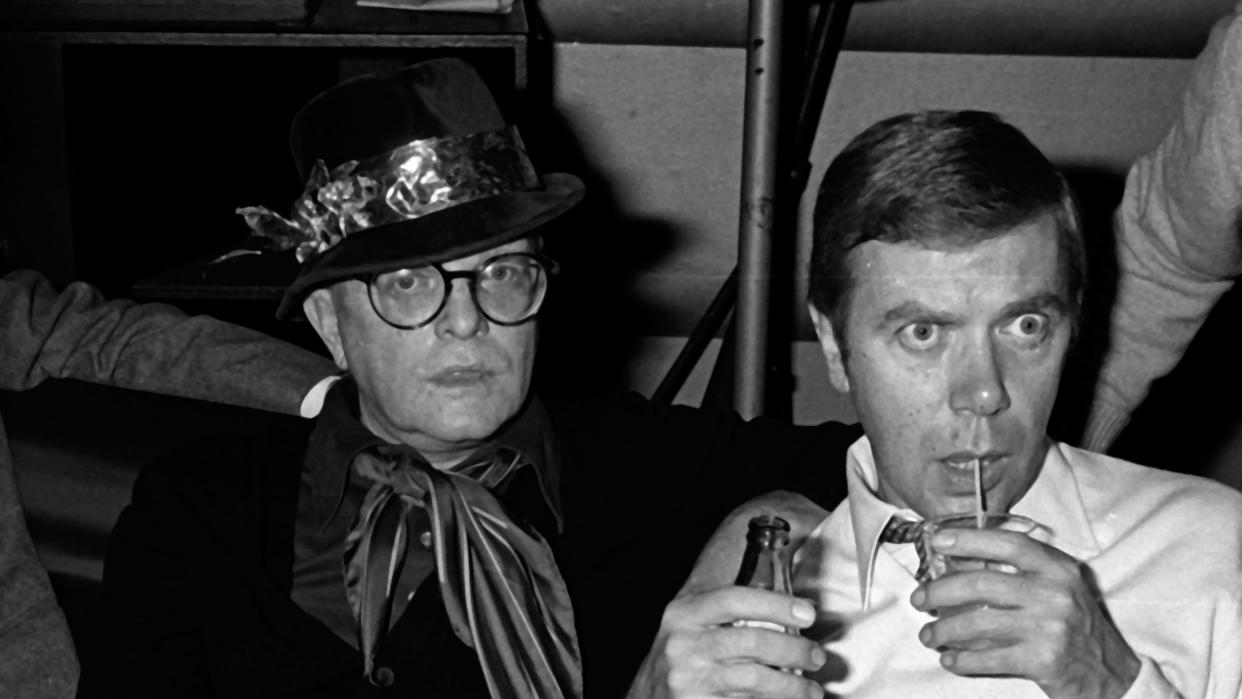
- Oops!Something went wrong.Please try again later.
"Hearst Magazines and Yahoo may earn commission or revenue on some items through these links."
Truman Capote’s life is often now reduced to loss: the loss of output in the wake of In Cold Blood, the loss of friends in the wake of publishing the short story “La Côte Basque, 1965” the loss of respect in the wake of his very public intoxication (often on talk shows). Even the two films about his life—Capote and Infamous—end with the beginning of his unraveling, as he completes In Cold Blood and then stares into the yawning abyss of “What next?” But throughout most of Capote’s life, there was one constant: his partner Jack Dunphy.
Dunphy and Capote stayed together in some fashion from 1948 through Capote’s death in 1984. But while Lillian Hellman and Dashiell Hammett’s relationship ebbed and flowed in many of the same ways, it became the crux of their reputations in popular culture; Dunphy has routinely been portrayed as an introverted stick in the mud annoyed by the frippery and frivolity of Capote’s Swans, the society doyennes who would turn their back on him en masse and whom Dunphy once dismissed as “peacocks.”
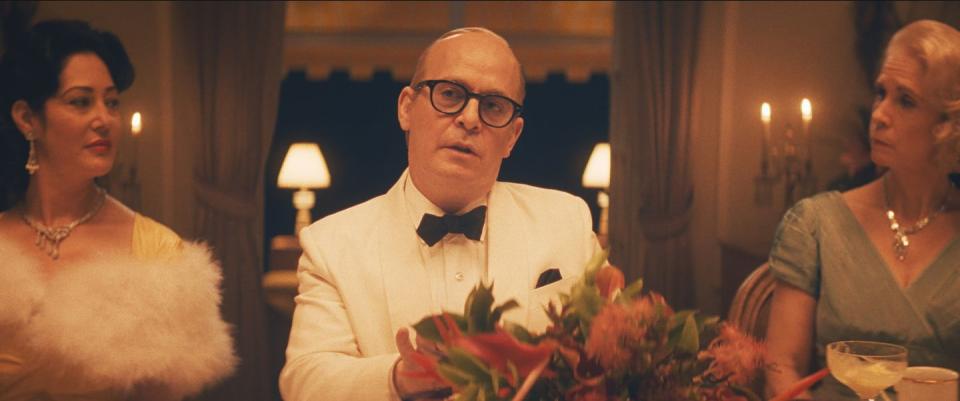
But in FX’s new limited series Feud: Capote vs. the Swans, we see a very different Dunphy. As portrayed by Joe Mantello, Dunphy is still the decade-older stabilizing influence on Capote’s increasingly out-of-control life, but he is given agency. And that’s something Dunphy had all along.
Before meeting Capote at a cocktail party, Dunphy was a professional dancer who had also published short stories. He toured with George Balanchine’s company in South America, as well as dancing at the 1939 World’s Fair and in the original production of Oklahoma! with his then-wife, Joan McCracken (who left him for Bob Fosse, who in turn left her for Gwen Verdon, as seen in another FX limited series, Fosse/Verdon). Dunphy reinvented himself as a full-time writer shortly after, publishing the novel John Fury in 1946. More novels followed—including the deeply strange Friends and Vague Lovers in 1952—even as Capote published the stories and books that would cement his reputation as one of the most famous writers in the country.
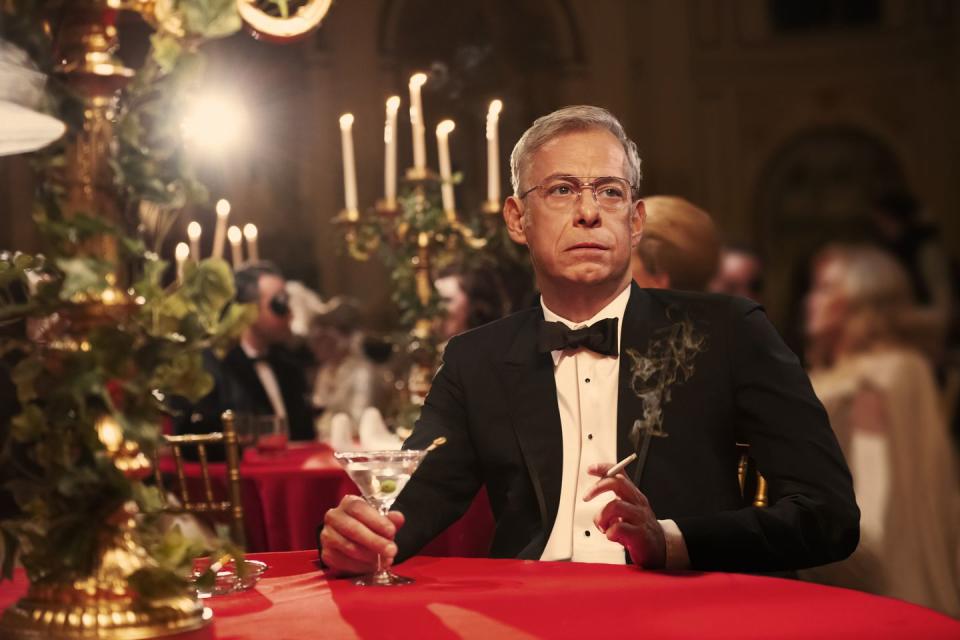
Prior to Dunphy, Capote was in another relationship with an older man: Smith College professor Newton Arvin, by all accounts a fastidious gentleman who seemed an odd choice for someone as gregarious and campy as Capote. Introducing the young Southern writer to the campus was akin, as one person phrased it, to “bringing bougainvillea to the North Pole,” but they remained devoted to each other; Capote ultimately dedicated his novel Other Voices, Other Rooms to Arvin, and frequently referred to him as one of the biggest influences on his life.
So, Capote’s love for the older, quieter Dunphy was not without precedent. Where Capote had an endless thirst to entertain (and to be entertained, as his eager-to-gossip friends realized to their dismay), Dunphy was a born observer. Their dynamic was set instantly when they met: “Truman arrived wearing a little cap and showing off. I thought he was adorable,” Dunphy said.
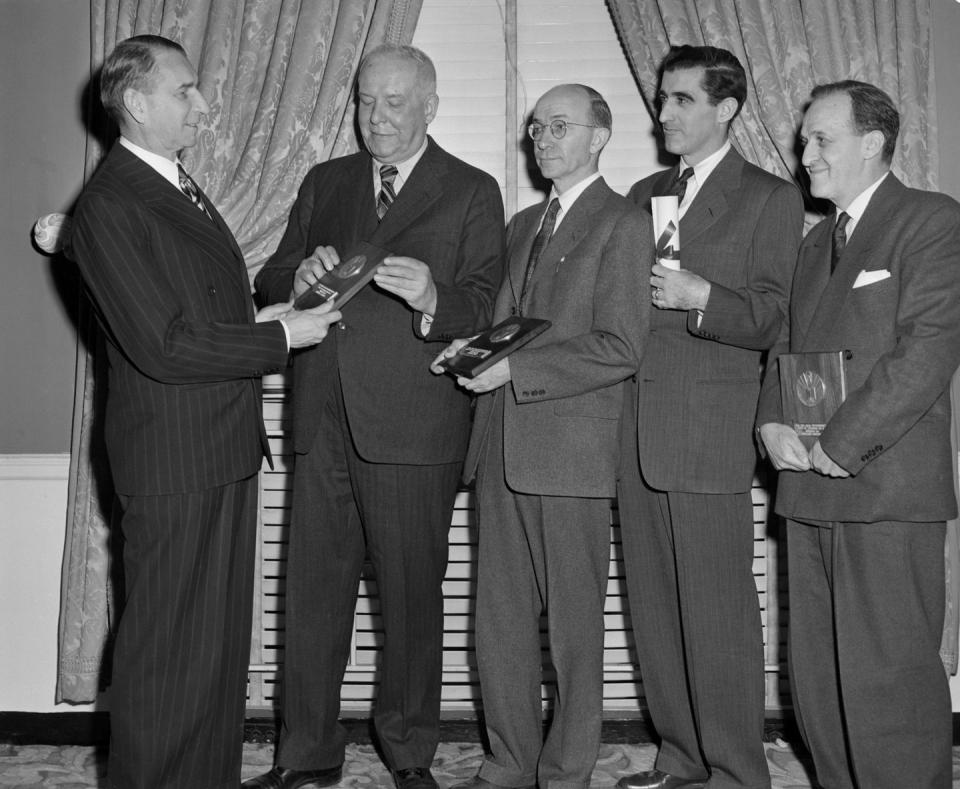
Dunphy came to serve as both a safety net and the father figure against which to rebel. They traveled and wrote together, but they increasingly spent long periods of time apart—they’re said to have had separate houses on the same plot of Long Island land, and Dunphy often fled the U.S. for their place in Switzerland—and ultimately their relationship turned platonic as Capote became seemingly intent on self-sabotage. That their relationship survived at all seems to be a miracle, considering Capote’s increasingly capricious choice of lovers, men he would drag into the lives of his friends even as they humiliated him—or worse.
Enter John O’Shea, the other major relationship in Capote’s life, portrayed in Feud by Russell Tovey. O’Shea was a married father of four living on Long Island when he and Capote met in 1973. (Explanations of how this very square banker came into Capote’s orbit differ, but Feud goes with a bathhouse meeting, which is as good as any other.) Within weeks, O’Shea was traveling with Capote as his business manager, writing to his wife and children tales of their international adventures with the jet set. As for his family? They embraced Capote as a fairy godfather—another example of his undimmable ability to charm his way into anyone’s life. But if Capote’s friends initially dismissed O’Shea as, in Carol Marcus Matthau’s words, “so ordinary that it was breathtaking,” he proved to be a far more insidious and abusive influence on Capote’s life.
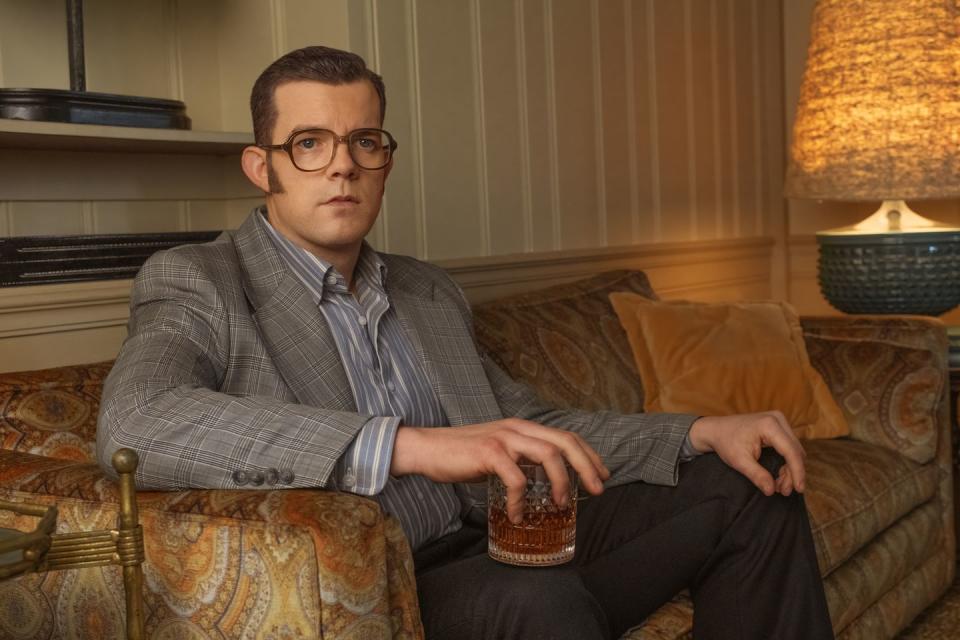
Both men engaged in bouts of heavy drinking, often in front of Capote’s friends, during which O’Shea would become verbally and emotionally abusive (at lunch one day, Matthau once threatened to shoot O’Shea with the gun in her purse if he didn’t stop). The man who threw a ball at the Plaza Hotel for 500 of his closest friends was in the kind of humiliating relationship that he would write about with acidic scorn in “La Côte Basque,” though the parallels never seemed to have occurred to him.
The on-again, off-again relationship did severe damage to Capote’s physical and mental well-being; never again would he and Dunphy be together in the same way, moving into a platonic friendship as Dunphy diligently pursued his own career and Capote began a decade-long decline into substance abuse and public embarrassment. But even as he and O’Shea waged war on each other, Capote remained a positive influence on his daughter, Kerry, who lived with him in the U.N Building as he set her on a career as a model.
After O’Shea, there were no more meaningful relationships for Capote—though one assumes that the man who once boasted of seducing Errol Flynn never lacked for companionship. Many of the friends who remained during his later years claimed that Capote was more of a romantic than a sexual being, even if the men were increasingly interested in his fame more than genuine affection.
In Feud, the final years of Capote's romantic life are encapsulated by a one-sided romance with a hunky handyman played by Vito Schnabel, who regales Capote's friends with tales of air-conditioning repair. There is gratitude between them but not much more. In a crushing moment, he turns down Capote’s pleas for sex to finish watching an episode of The Love Boat. The character isn't based on a real person, but instead conveys an idea of Capote's love life at the time. "I often think that truth is a guess," Feud writer Jon Robin Baitz told T&C. "Not of course, when it comes to empirical things like this earth not being flat. But I think you can take from a lot of the footage of what was happening of all of those people and build a picture that occasionally goes under the skin of the event and contains sort of imagined reportage. That's how you navigate it."
But it was always Dunphy to whom Capote returned, even as their relationship turned platonic and semi-permanently long-distance. After Capote’s death at age 59, Dunphy became his executor for the rest of the decade until his death at age 77. Their mingled ashes were scattered at Long Island’s Crooked Lake, leaving them together in eternity in a way they could never quite manage in real life.
You Might Also Like

